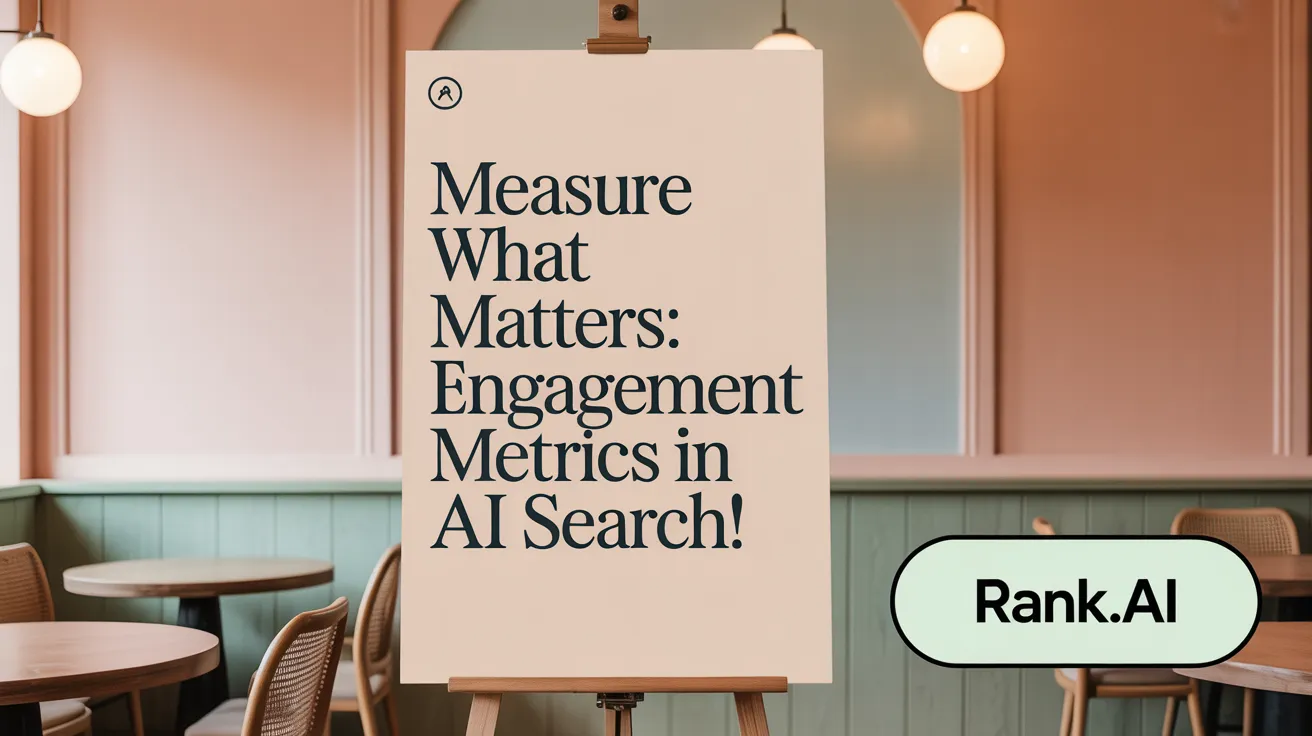Advanced Tactics to Optimize Websites for Google’s AI-Powered Search
Mastering SEO for the Era of AI-Powered Search Engines

Unlocking the Full Potential of Your Website in Google's AI Search Landscape
As artificial intelligence fundamentally reshapes search engines, optimizing for Google's AI-powered search requires more than traditional SEO tactics. This article explores advanced strategies to enhance website performance and visibility in an environment where AI Overviews and generative technologies dominate user queries, offering actionable insights based on the latest research and industry innovations.
Understanding Google's AI Search Transformation
How is Google's AI integration changing search behavior and results?
Google has deeply integrated advanced AI technologies, notably the Gemini model, into its search engine to enhance user experience. This integration powers new features such as AI Overviews, which provide concise, multi-source summaries above traditional organic results. Users now receive direct and comprehensive answers to complex questions without needing to visit multiple webpages.
This AI-driven change significantly alters search dynamics. Users click through to external sites less frequently because their information needs are met within the AI-generated summary itself. Studies report a marked decline in organic click-through rates—some sites have experienced reductions in traffic by up to 70%, especially on informational and non-branded keyword searches (BBC article on algorithm impact).
The shift from traditional link-based traffic to AI summary-driven interactions compels website owners and marketers to rethink SEO success metrics. Instead of focusing solely on clicks and rankings, the emphasis increasingly lies on engagement measures such as time spent on site, pages per session, and conversion rates. This shift underscores the importance of delivering unique valuable content that encourages deeper user interaction beyond the initial AI-provided answer.
Overall, Google's AI integration reshapes how users discover and interact with content, promoting a more efficient and context-aware search experience while challenging conventional SEO strategies (SEO fundamentals and AI integration).
Creating Unique, Valuable Content Tailored for AI Search

What content characteristics enhance visibility in AI search results?
Unique, comprehensive, and user-centered content is crucial for standing out in AI-driven search environments. Content must not only be original but also provide clear, detailed answers that directly fulfill visitors' needs. This approach aligns with Google's emphasis on E-E-A-T (Experience, Expertise, Authoritativeness, Trustworthiness), ensuring that the content carries authority and trust.
Creating expert-driven content that incorporates human insights adds depth and credibility. By including personal perspectives, expert opinions, and real-world use cases, content resonates better with AI's semantic understanding capabilities. This enhances its likelihood of being recognized as valuable (Creating Human-Centered Content).
Aligning content with user intent and long-tail queries
AI search engines thrive on natural language and context understanding. To match this, content should focus on addressing long-tail, question-based keywords which users naturally pose during detailed searches. Such alignment ensures content is contextually relevant and satisfies the precise intention behind queries.
Structuring content with headings, bullet points, and Q&A formats helps AI parse and feature content in snippets, summaries, and overviews (Optimizing Your Content for Inclusion in AI Search Answers). This structure further boosts visibility in AI search results.
Incorporating human insights and clear language for AI comprehension
Clear, concise, and humanized language aids AI algorithms in understanding and ranking content effectively. Avoiding jargon, using precise explanations, and providing context improves comprehension.
Moreover, adding unique frameworks, examples, and well-explained concepts not only enriches content quality but also encourages AI systems to prefer the content in generating answers (AI Search Optimization and SEO Tactics).
By focusing on originality, comprehensive coverage of queries, expert validation, and clear, user-friendly language, content creators can optimize their materials for AI-powered searches and secure improved visibility and ranking.
For more information, searching for "Effective content strategies for AI search optimization" can provide further insights.
Leveraging Structured Data and Schema Markup for Rich AI Features

How does structured data improve AI search visibility?
Structured data, implemented through schema markup, acts as a guide for AI search engines to comprehend and classify website content clearly. By tagging content with specific schema types like FAQ, HowTo, and Article, websites become more recognizable for AI algorithms, increasing the likelihood of being featured in rich snippets, featured snippets, and AI Overviews.
Utilizing schema types like FAQ, HowTo, and Article
Using well-defined schema categories tailored to the page content helps search engines and AI tools to associate content accurately. FAQ schema tags question-and-answer formats, HowTo schema details instructional steps, and Article schema defines news or informative articles. These structures make content more accessible and appealing for AI-driven search features.
Ensuring structured data matches visible content
It is critical that the structured data precisely reflects the visible content on a webpage. Mismatches or inaccuracies can lead to penalties or exclusion from AI-enhanced search listings. Validation of schema with tools like Google's Rich Results Test ensures data is correct and consistent with the page, optimizing visibility.
Benefits for rich snippets, featured snippets, and AI citations
Websites employing accurate and comprehensive schema markup improve their chances of appearing in enhanced search results that include rich snippets and featured snippets. Moreover, well-structured content is more likely to be cited and summarized by AI search engines, driving higher visibility and potentially increasing user engagement and conversions.
Optimizing Technical SEO for AI Crawlers and Accessibility
What technical SEO factors are critical for AI search?
Ensuring Googlebot can crawl and index your site smoothly is a foundational step for AI search optimization. This means avoiding blocks like noindex tags or restrictive robots.txt rules that prevent important pages from being discovered. Maintaining an HTTP 200 status code for your pages signals to search engines that your content is accessible and functioning correctly (maintaining successful HTTP status).
Ensuring crawlability by Googlebot
To optimize for AI search, your website must be fully accessible to Googlebot. This includes:
- Allowing Googlebot to access crucial URLs without obstruction (Googlebot access
- Making sure JavaScript and other resources are renderable (Rendering Website Content with JavaScript)
- Utilizing a clear sitemap structure to guide crawlers efficiently (Visualize website sitemap structure)
Maintaining HTTP 200 status and avoiding indexing blocks
Pages should respond with HTTP 200 status to confirm successful loading. Avoid using noindex, nosnippet, or similar directives unless intentionally controlling where content appears in AI search results. These controls manage snippet visibility but must be used carefully to avoid hiding valuable content (content visibility controls.
Improving page speed, mobile-friendliness, and site security
AI-powered search engines prioritize user experience, so technical factors like fast load times, responsive design, and HTTPS security are critical. Benefits include:
| Factor | Importance for AI SEO | Action Points |
|---|---|---|
| Page Speed | Enhances crawl efficiency and user engagement (fast load times | Compress images, minify code (image optimization techniques) |
| Mobile Friendliness | Supports accessibility across devices for all users (responsive design | Use responsive design frameworks (mobile-friendly design |
| HTTPS Security | Builds trust and ensures secure connections (HTTPS security | Implement SSL certificates |
By aligning your technical SEO to these factors, your website will be more accessible to AI crawlers and deliver a superior experience to users, leading to better AI-driven search rankings (succeeding in AI search.
Enhancing Content for Multimodal and Visual AI Queries
How can websites optimize for AI-driven visual and multimodal search?
Websites aiming to excel in AI-driven visual and multimodal searches must prioritize embedding high-quality images and videos alongside quality videos. These visuals should include descriptive alt text that clearly conveys the content and context of each media element. Incorporating structured data, particularly schema types like VideoObject and ImageObject, helps AI systems accurately interpret and index multimedia content.
Incorporation of high-quality images and videos
High-quality multimedia content enriches user experience and signals content relevance to AI engines. Original images, rather than stock photos, reduce the risk of ranking penalties and improve uniqueness. Videos that demonstrate subject matter or provide step-by-step guidance complement textual content effectively, thus increasing user engagement and dwell time—a factor positively correlated with rankings.
Optimizing multimedia with descriptive alt text and schema
Descriptive alt attributes are essential for accessibility and assist AI in understanding image content beyond visual appearance. Schema markup, such as VideoObject and ImageObject, should be implemented correctly to provide metadata including captions, durations, and content descriptions. This structured data boosts the chances of multimedia assets being featured in rich results and AI-generated search summaries.
Supporting AI’s multimodal understanding for better ranking
AI-powered search platforms integrate multimodal inputs, combining text, images, and video signals to form comprehensive understanding. By strategically supporting this approach through well-structured multimedia content, websites increase their visibility in AI search results. This holistic content strategy aligns with contemporary AI search priorities that increasingly emphasize visual and multimodal relevance.
In summary, websites can enhance their AI search performance by focusing on multimedia quality, accessibility, and proper markup. This ensures their content stands out in AI-powered environments where visual data is integral to user queries and engagement.
Advanced Content Structuring to Aid AI Parsing and Snippet Eligibility
What content formatting improves AI’s ability to feature your website?
Organizing your website's content with clear and hierarchical headings such as H2 and H3 tags plays a vital role in AI’s comprehension. Using bullet points, numbered lists, and question-and-answer formats further aids AI search systems in parsing and extracting relevant information efficiently.
Using headings, lists, tables, and Q&A formats
- Headings (H2, H3): They partition content into manageable sections, making it easier for AI to understand topical relevance (Optimizing Your Content for Inclusion in AI Search Answers.
- Lists: Bulleted or numbered lists clearly outline key points or steps, boosting readability and AI recognition (AI Search Optimization.
- Tables: Tabular layouts organize comparative or detailed data systematically, improving snippet eligibility (Optimizing Your Content for Inclusion in AI Search Answers.
- Q&A formats: Explicitly framing questions and their answers directly supports AI in retrieving precise responses (Optimizing Your Content for Inclusion in AI Search Answers.
Creating concise, well-organized content segments
Content should be concise yet comprehensive, presenting focused information within each segment to maximize AI snippet potential. Short paragraphs that are self-contained help AI isolate and replicate precise answers in search results (Optimizing Your Content for Inclusion in AI Search Answers.
Facilitating AI extraction of answerable content pieces
Structuring content clearly promotes AI’s ability to pull out textual fragments for featured snippets and AI summaries. Employing semantic clarity and avoiding excessive text walls ensures algorithms can parse material effectively, increasing the likelihood of your content being featured prominently (How to Optimize Content to Rank in AI Search Results.
By adhering to these structured content practices, websites can improve their SEO performance and visibility within AI-enhanced search results, capitalizing on evolving AI search trends.
Utilizing AI-Powered SEO Tools for Optimization and Analysis

How do AI SEO tools support optimization for AI-powered search?
AI SEO tools play a pivotal role in optimizing websites for AI-driven search engines by automating critical SEO tasks. They facilitate thorough keyword research, help craft high-quality, user-focused content, and allow technical SEO audits to ensure effective crawlability and indexing. Beyond basic SEO, these tools assist in strategic backlink analysis and enhance content alignment with user intent and AI expectations.
Employing tools like Semrush, Ahrefs, ChatGPT for keyword research and content creation
Popular AI-powered platforms such as Semrush AI Toolkit, Ahrefs, ChatGPT provide advanced keyword research features that uncover long-tail keywords and emerging trends optimized for semantic search. ChatGPT aids content creators by generating clear, structured, and relevant material aligned with search intent, which is crucial for visibility in AI-generated search results. These tools also help maintain consistent E-E-A-T standards, leading to improved rankings.
Tracking brand visibility in AI search with platforms like Profound and Rankscale.ai
Advanced platforms like Profound and Rankscale.ai specialize in monitoring how a brand or website performs across various AI search engines. They track AI mentions, citations, and the frequency of brand appearances, giving marketers insights into their brand’s AI presence. This data guides optimization efforts, ensuring content remains authoritative and well-positioned for AI-driven results.
Analyzing AI mentions, citations, and engagement metrics
Analyzing engagement metrics goes beyond clicks to include time on site, conversion rates, and quality of interactions driven by AI search referrals. AI SEO tools provide dashboards summarizing these metrics alongside AI citation analysis, enabling continuous refinement of SEO strategies. This data-driven approach is essential to adapt in the evolving AI search landscape and to maximize sustained organic growth.
| Aspect | Tools | Purpose |
|---|---|---|
| Keyword Research & Content | Semrush AI Toolkit, Ahrefs, ChatGPT | Discover keywords, create quality content |
| Brand Visibility Tracking | Profound, Rankscale.ai | Monitor mentions and presence in AI searches |
| Engagement & SEO Analytics | Google Analytics, Semrush AI Toolkit | Measure conversions, engagement, citation data |
By integrating these AI SEO tools into your digital strategy, you can efficiently optimize for AI-powered search engines, enhancing visibility and engagement in an increasingly AI-driven search ecosystem.
Building and Maintaining Authority and Trustworthiness for AI Ranking
Why is authority and trust important for AI search rankings?
AI search engines prioritize content that demonstrates experience, expertise, authoritativeness, and trustworthiness (E-E-A-T). These qualities help AI systems recognize credible and reliable content sources. By establishing strong E-E-A-T signals, your content is more likely to be chosen for AI-generated summaries and overviews, improving your visibility and ranking.
Following Google’s E-E-A-T principles
To meet E-E-A-T standards, focus on creating well-researched, accurate content authored by credible experts. Clearly display author credentials and biographies on your site to convey expertise. Regularly update content to maintain accuracy and relevance, reflecting ongoing knowledge and experience. Learn more about creating trustworthy content for AI search.
Publishing consistent, expert content with author credentials
Consistent publication of high-quality content helps build a reputation for authority in your niche. Including author credentials and expertise supports trust and transparency, which AI algorithms recognize and reward. See creating human-centered content for deeper insights.
Earning backlinks and unlinked brand mentions
Acquiring backlinks from reputable sites and converting unlinked brand mentions into links strengthens your site's authority. Authoritative backlinks signal to AI that your content is trusted and referenced by other experts and respected sources. Strategies for building backlinks from unlinked brand mentions can be very effective.
Enhancing social proof and positive reviews
Encourage positive user reviews and testimonials to build social proof. Engagement signals from satisfied users contribute to trustworthiness, which AI considers when ranking content. Understanding the role of user engagement and conversion metrics will help you leverage this factor.
By focusing on these strategies, you can improve your content's authority and trustworthiness, enhancing its performance in AI-driven search results. For a more detailed guide on SEO tactics on AI search, including authority and trust building, check the linked resource.
Measuring Success Beyond Traditional SEO Metrics in AI Search

What metrics best track success in AI-driven search environments?
In the evolving landscape of AI-driven search, traditional metrics like click-through rates are becoming less reliable due to the growth of zero-click searches where AI summaries provide direct answers. For more details, see AI Search Optimization and Thriving in AI search and also The Rise of Zero-Click Searches.
Emphasizing engagement metrics such as time on site, conversions, and pages per session
To better gauge website performance, focus on deeper engagement indicators including time on page, the number of pages viewed per session, and conversion rates. These metrics reflect the true value visitors derive from your site beyond just the initial click. Explore these in measuring search visit value and Analyzing engagement beyond clicks as well as Analyze engagement beyond clicks.
Tracking AI-specific visibility indicators like featured snippet appearances and AI mentions
Success in AI search also depends on monitoring your content’s presence in AI-generated features such as featured snippets and AI mentions. These indicators show how often your content is being selected as a primary source by AI systems. Relevant insights can be found in Tracking featured snippet appearances and SEO for AI-generated answers plus Google AI Overviews.
Using advanced analytics tools for AI traffic analysis
Leverage specialized analytics tools tailored for AI environments that track AI referrals, voice search traffic, and AI citation frequency. Such platforms provide insights into how your brand is referenced and engaged with within AI-powered search ecosystems. See Profound AI search platform and Using AI analytics in SEO for tools and methodologies along with AI-powered SEO tools (Semrush, Ahrefs, ChatGPT).
Focusing on these nuanced metrics ensures a comprehensive understanding of AI search success, helping you optimize strategies and maintain visibility in a rapidly changing search landscape.
Adapting to Ongoing AI Search Evolution and Future-Proofing Strategies

How should websites adapt to the rapidly evolving AI search landscape?
Adapting to the fast-changing AI search environment requires websites to stay proactive and flexible. Continuous monitoring of AI search trends and frequent updates to Google's AI algorithms are essential to keep strategies current and effective.
Websites should experiment with new content formats that cater to voice search, visual search, and multimodal AI search capabilities. This includes creating conversational and structured content such as FAQs, detailed lists, and interactive media that align with AI-driven user interactions.
Regular SEO audits targeting AI-specific factors—like crawlability for AI bots, structured data accuracy, and page performance—help refine tactics and identify areas for improvement. These audits ensure that technical SEO and content quality meet evolving AI standards.
Integrating SEO initiatives with AI discovery platforms and digital PR amplifies a website's authority and trustworthiness. Securing authoritative brand mentions and backlinks on high-credibility sites enhances AI visibility and citation frequency, key for AI-generated results.
By building adaptable strategies that combine ongoing analysis, innovative content structures, technical optimization, and digital outreach, websites can future-proof their presence in AI-powered search results and maintain competitive visibility.
Navigating the Future of SEO in an AI-Driven World
Optimizing for Google’s AI-powered search requires a sophisticated blend of traditional SEO fundamentals and cutting-edge AI-focused tactics. By delivering unique, structured, and authoritative content, leveraging advanced technical optimizations, and utilizing AI-driven tools for continuous analysis, websites can thrive despite the transformative impact of AI search technologies. Embracing ongoing adaptation and viewing SEO as part of a broader AI discovery ecosystem will empower brands to sustain visibility and engagement in this dynamic landscape.
Table of contents
Recent articles
Fresh insights on AI and SEO to help you stay ahead of the curve.


Ready to Improve
Your Rankings?
Use our free tools to get instant insights into your SEO performance and discover opportunities to rank higher




